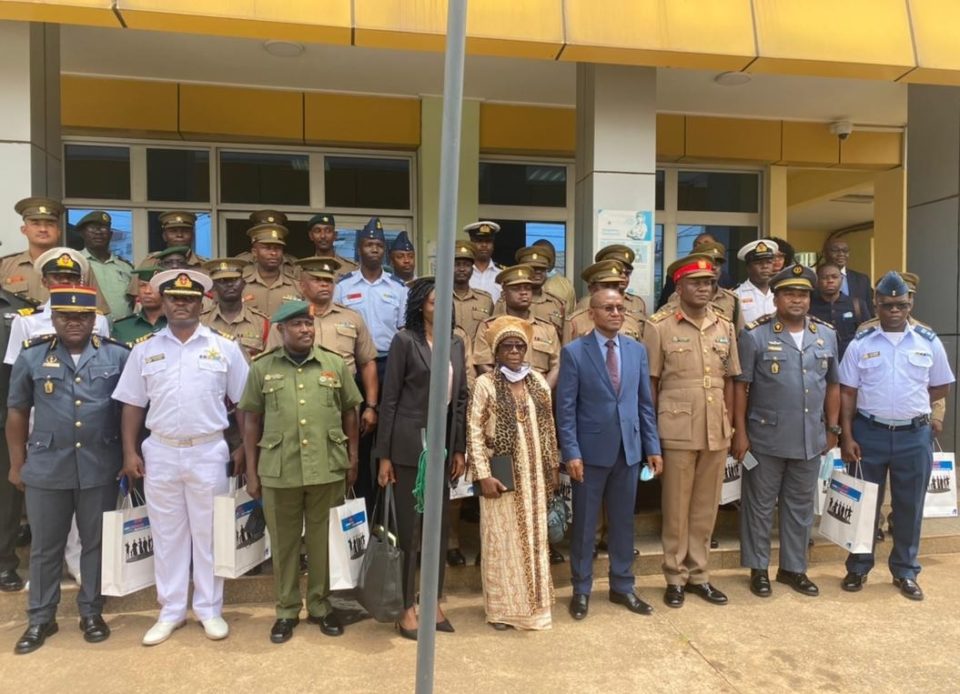A batch of students from the Kenyan Defence Staff College was at the National Agency for Information and Communication Technology, ANTIC on Monday.
Here, the delegation from the Nairobi College akin to Cameroon’s International War College (ESIG) were scouting best practices ANTIC is using to combat cybercrime, and promote the digital economy. Also, the students of the Kenyan forces headed by Brigadier Mwamburi Joachim Ngure are looking for paths of cooperation between Yaoundé and Nairobi in the ICT sector. “The major purpose of our visit here, is to appreciate the importance of regional cooperation, especially in securing the African continent and our borders and also to understand the importance of technology in the security of our nation’’, a member of the delegation Major Dimitry Gwandho explained the purpose of the visit. “We have come here today to foster the great partnership we have with Cameroon and further build it as we face emerging threats in the 21st century,” the Major added as he concluded that “we all know that there are many threats and no country can do it alone by itself. That is why we have come to visit our brotherly country-Cameroon, our African partner in security and in the development of the African continent’’.
Speaking as he received the delegation from Kenya, ANTIC Director General, Prof. Ebot Ebot Enaw said cyber security and cybercrime are emerging, because Cameroon like Kenya is progressively increasing access to broadband internet. At such, the Prof Ebot Ebot said there is a pressing need to ensure that citizens, governments and businesses are protected. Prof Ebot Ebot says the snowballing in the use of Information and Communication Technologies, ICTs and real-time borderless exchange of information have made cyber security a complex transnational issue that requires global cooperation in ensuring a safe cyber community. “In this light, this meeting provides us with a unique opportunity to strengthen cooperation ties between our countries in this area,” he said while adding that “Increasing global cyber threats and cyber-attacks already constitute a threat to national, regional and international peace, security and consequently demand the putting in place of global instruments that promote security and stability of our cyberspace”.
He also hyped Cameroon’s promising ICT sector to the Kenyan visitors, explaining that the government of Cameroon has mobilised significant resources in recent years, despite the difficult economic situation. He cited the expansion of the national optical fibre network, which he said, now covers 20,000 km across the national territory. Prof Ebot Ebot mentioned Cameroon’s current five submarine cables landing points, the deployment of two Internet exchange points in Yaounde and Douala, and the creation of several incubators for the transformation of innovative ideas to businesses – causing, according to Prof Ebot Ebot a big jump in the Internet penetration rate – from 4.3% in 2010 to more than 40% in 2021.
Jude VIBAN





